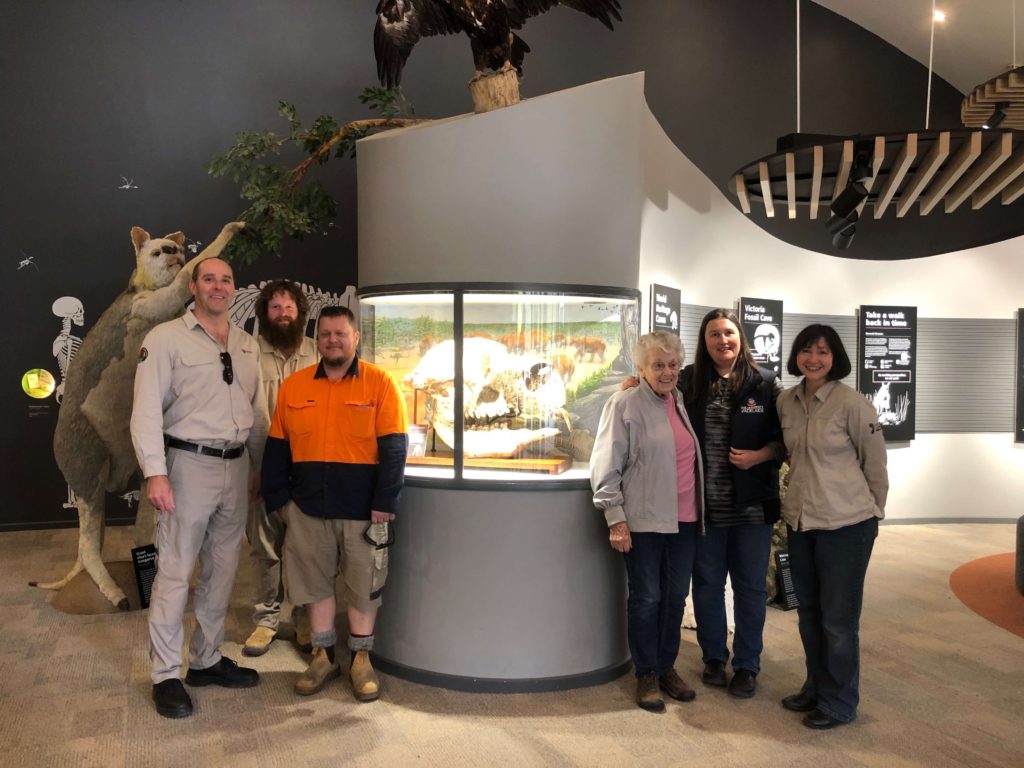New megafauna fossils unveiled at Naracoorte Caves
The South Australian Museum has loaned a complete Diprotodon skull and jaws for long term display in the Fossil Centre at the Naracoorte Caves World Heritage Area.
Due to its age and condition the Diprotodon skull required many months of cleaning and preparation by SA Museum staff and volunteers. Marjorie Jones, a long term volunteer at the Museum and a highly skilled peparator, performed much of the work.
Dr Mary-Anne Binnie and Dr Liz Reed revealed that the Diprotodon optatum was the largest marsupial that ever lived, it weighted around 2500 kg and became extinct around forty five thousand years ago. Fossils of this animal have been found at the Naracoorte Caves.
This amazing specimen was collected from Lake Callabonna in Northern South Australia in the 1890s. It was collected by SA Museum Director Dr Edward Stirling during an expedition to the arid north of the state. Dr Stirling had a strong connection to the Naracoorte Caves as he was the first to report megafauna fossils from the Caves.
In 1908 Stirling and his assistant F.R Zietz visited the Caves after being advised of large bones found, by park caretaker William Redden. The new display of this gigantic Diprotodon skull adds a wonderful new attraction for visitors of the Naracoorte Caves and will be a drawcard for the whole Limestone Coast region.
Current research and science communication activities at the Caves highlight the significant partnership between University of Adelaide researchers, the South Australian Museum, Naracoorte Lucindale Council and the local Naracoorte community. This also strengthens the ongoing relationship with the National Parks and Wildlife Service through direct collaboration and involvement at the Naracoorte Caves for scientific research, visitor engagement and promotion of the Naracoorte Caves World Area.

Images: Dr Liz Reed

Newsletter & social media
Join us for a sensational mix of news, events and research at the Environment Institute. Find out about new initiatives and share with your friends what's happening.
